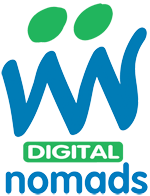Disruptive Revolutions
The Industrial Revolution marked a transition in manufacturing. An age of advancement characterised by coal, steel and steam that marked a major turning point in history (from about 1760 to 1840). Almost every aspect of daily life was influenced in some way, with new technologies having many disruptive effects e.g. railways rapidly replacing canals.
In 150 years time will Wikipedia describe a Digital Revolution? A period of rapid advancement and disruptive change occurring from the start of the space race, the development of the Internet and world wide web and the emergence of mobile technologies?
Whilst writing this post, news is breaking about Blockbuster becoming the latest high street outlet to go into administration, hot on the heels of HMV and Jessops. The villain of the piece, at least according to the daily’s (whose days I suspect are also numbered) is online shopping. But, isn’t this just a disruptive shift in behaviour, driven by technology?
Closure of high street shops and the loss of thousands of jobs is a serious matter. However, many jobs have been created by online industries, in leisure and gaming, distribution networks and the technology sector itself, including the retail sale of all those devices we now use on a daily basis.
There can be no doubt that something significant is taking place. Those who choose to bury their heads in the sand and hope this will go away do so at their peril, particularly if they are in business.
The web has created a new economy, which is challenging traditional business. Companies like Amazon have shown the way forward but you don’t have to be a giant to benefit. Small and medium-sized companies are increasingly doing business on the web, often using social technologies to enhance marketing and drive traffic.
Being an online business doesn’t have to mean online shopping either – the web is being used in many creative ways to support existing ’bricks and mortar’ businesses. The cost and complexity involved is no longer a barrier.
Smart organisations are using digital technologies, particularly mobile, to work in new ways, reduce paper-based processes, downsize offices and work remotely and at home. Work is no longer a place we go but an activity we do.
We are without doubt witnessing a digital revolution. A transition which may bring risks and threats, but which also presents many new opportunities and life enhancing benefits.
We’re probably only just seeing the tip of the iceberg too!



